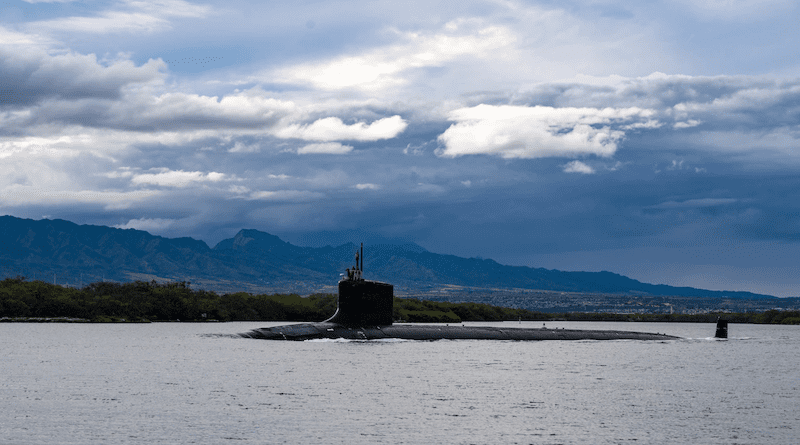Pentagon Official Says Sub Agreement Will Help Guarantee Free, Open Indo-Pacific
By DoD News
By Jim Garamone
U.S. defense officials believe the Australia-United Kingdom-United States enhanced security partnership will go a long way to guaranteeing stability and security in the Indo-Pacific region.
Mara E. Karlin, performing the duties of deputy undersecretary of defense for policy, said the agreement spells out the pathway for Australia to acquire a conventionally armed, nuclear-powered submarine capability. The so-called AUKUS agreement is the latest example of how close the alliance is among the three nations.
“The three nations took 18 months to identify the optimal pathway for Australia to acquire this capability while setting the highest nuclear non-proliferation standard,” she said at a Pentagon news conference. “This plan will deliver on that commitment and lift all three nations’ submarine industrial bases and undersea capabilities, enhancing deterrence and promoting stability in the Indo-Pacific,” Karlin said.
Australia, the United Kingdom and the United States have been firm and dependable allies since 1917, when soldiers of the three nations fought side-by-side in the trenches of France. It is hard to exaggerate how close the alliance is among the nations, she said.
The AUKUS agreement is the next logical step in the partnership among the nations and should help the United States pursue a free, open and secure world and protect U.S. national interests and those of allies and partners, she said. “AUKUS advances this goal by building our military capabilities, and those of two of our very closest allies, enabling closer military planning and cooperation,” she said. “It is a generational opportunity to enhance the national security of all three nations.”
This deployment will ensure Australian service members can continue familiarizing themselves with how these vessels operate, how they are properly maintained, and how to safely operate together. “The increased presence of U.S. submarines will buttress regional stability and support the safe development of Australian stewardship of its own sovereign, conventionally armed, nuclear-powered submarine enterprise,” she said.
Under the next phase the United States will sell three Virginia-class submarines to Australia, with the potential for two more submarines depending on conditions. This will provide Australia with a conventionally armed, nuclear-powered submarine capability prior to building their own. This will mean there will be “three allied, and highly interoperable [submarine] fleets operating in the Indo-Pacific,” Karlin said.
The final phase revolves around the SSN-AUKUS — a next generation conventionally armed, nuclear-powered submarine that will be designed and constructed by Australia and the United Kingdom and incorporate cutting edge American technologies in their propulsion plant, combat control and in weapon systems.
Australian sailors should be sailing nuclear-powered submarines built in their own yards by the early 2040s.
AUKUS will diversify U.S. posture in the Indo-Pacific, offering new locations from which American forces can operate, Karlin said. “AUKUS will strengthen U.S. and allied submarine industrial capacity, which is key to modernizing, innovating and maintaining our military and economic competitive edge today and in the future.”
This close partnership will also help “modernize our information sharing and export control systems, which is necessary for the effective implementation of AUKUS,” she said.

